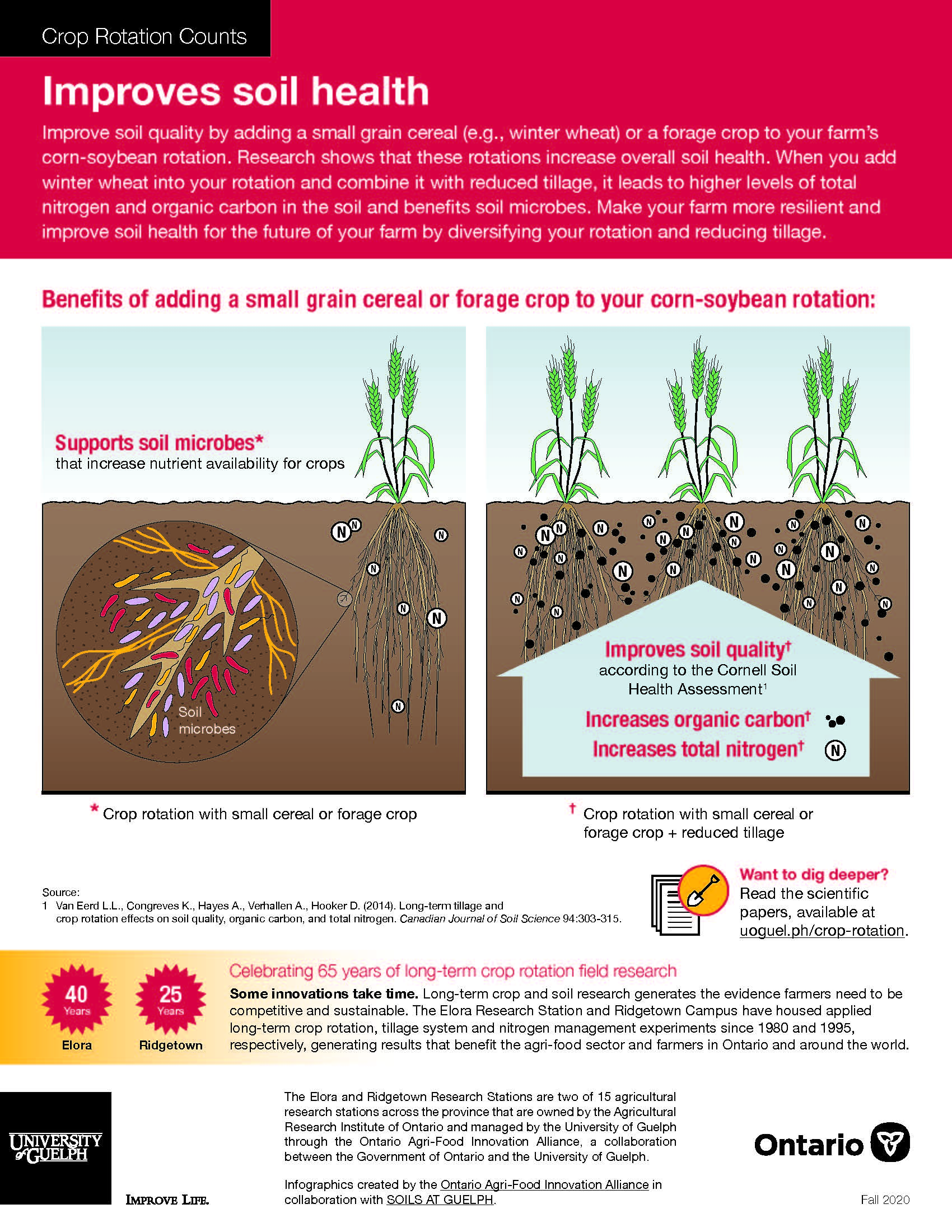Crop Rotation Counts: Improves Soil Health (Text Version)

Improve soil quality by adding a small grain cereal (e.g., winter wheat) or a forage crop to your farm’s corn-soybean rotation. Research shows that these rotations increase overall soil health. When you add winter wheat into your rotation and combine it with reduced tillage, it leads to higher levels of total nitrogen and organic carbon in the soil and benefits soil microbes. Make your farm more resilient and improve soil health for the future of your farm by diversifying your rotation and reducing tillage.
Benefits of adding a small grain cereal or forage crop to your corn-soybean rotation
In crop rotation with small cereal or forage crop:
- Supports soil microbes that increase nutrient availability for crops.
In crop rotation with small cereal or forage crop plus reduced tillage:
- Improves soil quality according to the Cornell Soil Health Assessment (see source 1).
- Increases organic carbon.
- Increases total nitrogen.
Source:
- Van Eerd L.L., Congreves K., Hayes A., Verhallen A., Hooker D. (2014). Long-term tillage and crop rotation effects on soil quality, organic carbon, and total nitrogen. Canadian Journal of Soil Science 94:303-315.
Want to dig deeper?
Celebrating 65 years of long-term crop rotation field research
Some innovations take time. Long-term crop and soil research generates the evidence farmers need to be competitive and sustainable. The Elora Research Station and Ridgetown Campus have housed applied long-term crop rotation, tillage system and nitrogen management experiments since 1980 and 1995, Ridgetown respectively, generating results that benefit the agri-food sector and farmers in Ontario and around the world.
The Elora and Ridgetown Research Stations are two of 15 agricultural research stations across the province that are owned by the Agricultural Research Institute of Ontario and managed by the University of Guelph through the Ontario Agri-Food Innovation Alliance, a collaboration between the Government of Ontario and the University of Guelph. Infographics created by the Ontario Agri-Food Innovation Alliance in collaboration with SOILS AT GUELPH.